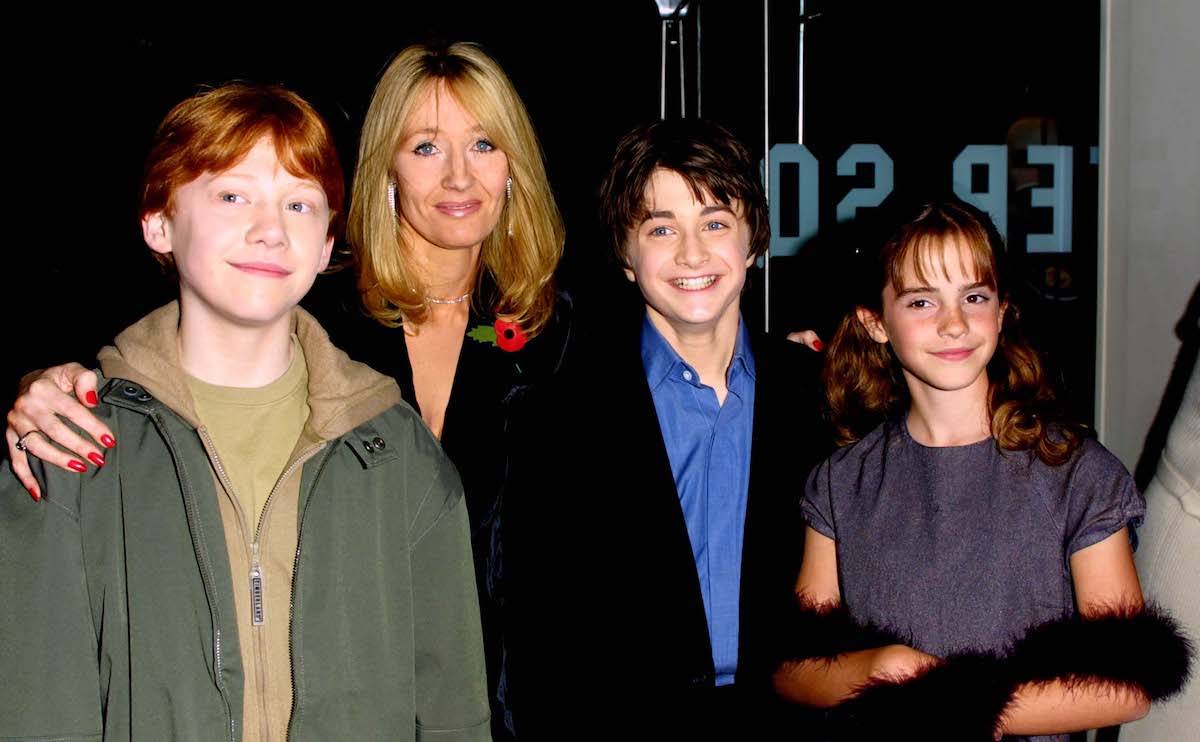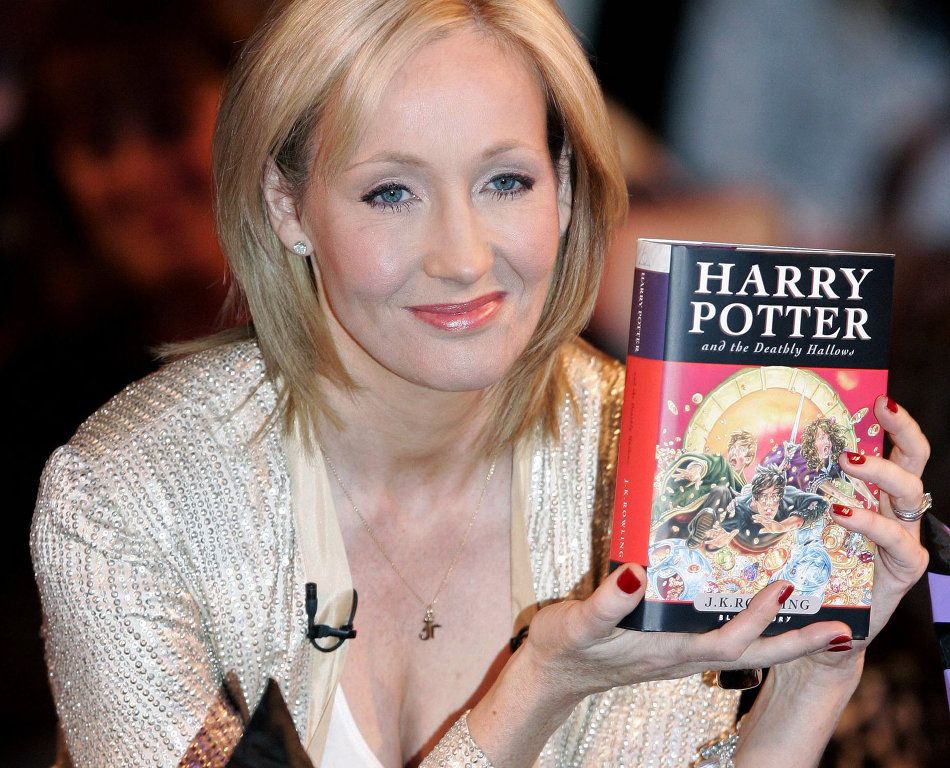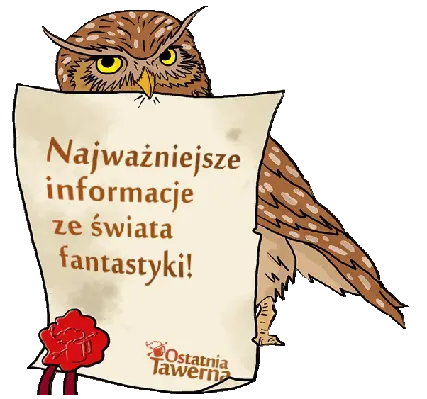Michał: In conclusion, it would be worth getting down to earth and looking at “Harry” from the perspective of our real world. In this context, a particularly interesting issue seems to be the controversy that has arisen over the recent activities of JK Rowling. How do you think it influences or will influence the reception of “Harry Potter” and the whole universe?
Eliza: It’s a very complex and a bit ‘slippery’ topic. For me, it was so difficult that – as I wrote in the previous threads – it was Rowling who first made me aware of the dangers of intolerance. And here is such a scandal!
By defending or criticizing it, we will most likely be immediately pigeonholed into one option or another, as there is a tendency to flatten reality; you are either for or against. I believe that such generalization is unfair to Rowling as well as to the people she offended by her statements. It is more complicated.
In my opinion, what she wrote was due to her lack of knowledge of a very difficult issue that she spoke about. I don’t want to believe that he is a transphobe or any other phobia, it just doesn’t stick to me. I believe she has spoken on a topic she knows too little about to be so unequivocal. After all, the phenomenon he talks about is multi-dimensional. On the other hand, she is a struggling person and remembers the difficulties she has struggled with in the past. It’s just a little short-sighted.
The key, however, is what Michał asked: how does all this affect the reception of the novel?
And here I see two possibilities. For most people who, like us, grew up with her books, it won’t change anything in their perception. However, those who pick them up for the first time, but heard all this criticism of the author earlier, will unfortunately look at the events in the books through this prism. Perhaps many people will choose not to read them for this reason. Or maybe other people will use them for this reason: to see if this content will be found in the story of a young wizard? I, however, separate Rowling’s views from the amazing world she created. I still believe she had no bad intentions. However, it certainly had shortcomings in education, and this is a common phenomenon today. Nobody’s perfect, so neither is JK Rowling. Neither are its heroes, as we have discussed extensively before.

Krzysztof: Honestly speaking, I am more disgusted with the incredibly sharp reaction to her words than with the words themselves. It seems to me that, as a public figure, she unnecessarily spoke out on this matter, because we know for a long time that for many people it is a very sensitive and delicate subject. It wasn’t hard to predict that it wouldn’t go unnoticed. Nevertheless, I think that she simply expressed her opinion, her private opinion or the assessment of certain phenomena, dependencies, etc. An opinion is subjective, and therefore marked by personal experiences and views, and whatever statements we make, they can simply be wrong. Nobody is an oracle.
I am not trying to judge which side is “right”. Primarily because the issue of cultural sexuality, gender and the like is not an exact science. There is no zero-one, laboratory-verifiable answer to questions such as “what is a woman?” in a socio-cultural context. Virtually every view on these issues can be better or worse justified, so we should probably be more tolerant and open to dialogue, trying to understand what someone means and why they think so. Seek agreement, not opportunity to fight. This applies, of course, to Rowling’s careless and indelicate speech, but also – or perhaps most of all – to the people who criticize her.
Because the allegations of transphobia are indeed serious, and many people began to regard Rowling with open contempt after this situation. I believe that a large part of society today is too quick to take metaphorical pitchforks and throw such strong epithets and accusations at others for often trivial reasons, which is simply unfair and disturbing. Firstly, because it divides us into groups and increases mutual aggression, and secondly because words like “transphobia” begin to lose their meaning. In fact, they were to denounce discrimination, that is, situations in which someone genuinely harms someone because they are the object of worse treatment, attacks or hatred. Currently, one false move is enough to fall into this category, and we are dehumanized, because we suddenly turn into a cruel tormentor like Voldemort,
As for the reception of the work itself – many people openly declared that their reception of Harry Potter had become negative, and their sympathy for the universe had clearly decreased. Well, they have the right to do so, after all, everyone has their own opinion and feelings. In my case, nothing has changed, and I do not understand and do not approve of such attitudes, but this is also just my opinion. The content of the books has not changed due to JK Rowling’s twitter publications some years after the last volume was published. Therefore, I see no reason why Potter’s perception should be different, as long as we cannot point the finger at the fragment of the text against which we have allegations. But if we do this, we will already be talking about the work in terms of content, and not vent the emotions associated with the author’s media statement. At least in theory.
Mateusz: I agree with your opinion. The strangest for me are the opinions of Rowling’s opponents who suddenly “perceive her work differently and notice her homophobia, etc. in Harry Potter . It works by creating your own theories, often relating to insignificant events or heroes (casus Jar Jar Binks as Lord of the Sith). It is best to approach such works as the first time, because later we often think of stupid things.
In Rowling, I would see our Wałęsa a bit – he must always have his opinion (even if no one asks for it) and he tells nonsense without any preparation or prior thought. Does this mean that he is deliberately harming someone? No. Should it discard her / his achievements? Definitely not! The worst part, though, is that there are actually so many pest-makers in fantasy that get away with it, and we hate someone like Rowling.
Michał: In fact, everything that could be said on this topic has already been said. From myself I will only add that, as after the premiere of The Crimes of GrindelwaldRowling ceased to be an authority for me, so almost each of her next actions only deepened my aversion towards her. From absurdities, such as writing on official websites about “Harry” about … a spell to remove feces (sic!) To what he writes recently, everything he does not only harms the wizarding world itself, but also creates it image as a person who does not quite know what he is saying and doing. I also get the impression that she is trying to please everyone by taking voices on various issues and interceding for various social groups, and as a result, she comes out to someone who does not know what he is talking about, because every now and then she proclaims mutually exclusive theses and collects hits insofar as these are theses related to very controversial topics. Overall, I believe that a writer or any artist he should not get involved in politics and political correctness, because that is not his role. Rowling definitely does not follow this rule, which makes him lose even more in my eyes.
However, I do not understand, just like Mateusz, why, after the recent actions, Rowling has significantly increased criticism of “Harry” himself. I am of the opinion that the works should be separated from the creator himself, because they testify to the artist’s craftsmanship and genius and will always remain the same, while the author, as we have seen many times in recent years, often turns out to be changeable like a flag in the wind . The best local example is Andrzej Sapkowski and his series about The Witcher – although the author is quite a controversial man, the saga is brilliant and still highly appreciated by many. The same goes for “Harry” and JK Rowling – even despite what the author has been doing for several years, the magic of her series will never fade away and its content will remain universal, so I do not think

Eliza:I will definitely disagree with the alleged principle that Michał wrote about that artists should not get involved in politics. Those who have no idea what they may and should not talk about, but why would the profession limit us so much that we cannot comment on a topic that interests us, about which we have knowledge? Especially public figures, known widely and with access to a huge audience of their words, have great opportunities to be advocates for the social affairs in which they believe. As authorities for a large group, they can change the mindset of the masses. Of course, it is only valuable when their statements are supported by current knowledge. I am a singer and writer myself and I cannot imagine that for this reason I would not be able to speak in public, for example, in defense of people who are harmed in my opinion. The fact that I am not in office does not mean that I have no knowledge and my own opinion. If something pisses me off, no matter what I do, I want to have the right to protest.
In the case of well-known people, however, it is associated with a great responsibility. A person as famous as Rowling, or the aforementioned (rightly so here) Sapkowski, must take into account that her statement will have strong consequences, will affect many people and will never be erased from history. Therefore, as Krzysztof mentioned earlier, a public figure should weigh words more heavily. However, he has the right to his own opinion.
Michał: Actually, I meant not so much that the creator should not get involved in politics and social matters, because he is “not allowed”, but that his role is something completely different. Art is something completely separate from politics – its task is rather to stand in opposition to what is happening, to look at it objectively, critically and comment on it, in order to cause some reflection in people. Therefore (also as a writer) I believe that the creator should only be a commentator on the surrounding reality, rather than taking an active part in it, especially since, as you rightly noticed, his words are associated with a huge responsibility and people remember all mistakes forever. And even less so, he shouldn’t do it when he has no idea what he’s talking about – just like the author of our beloved series did.
Eliza: Art is too broad a concept to have only one specific role – it has so many. It depends on the creator what his work will be, whether he will comment on something, whether it will be the background of something, whether he will stand in opposition or support a phenomenon, so (if not created on someone else’s request) it is always a subjective expression of the author’s opinions, feelings or thoughts . There is no such thing as objective art. Objective may (and should) be an art critic, but not its creator. Art may or may not comment on anything, it may just be something “nice”. It is unlimited.
There is also such a thing as engaged art, the purpose of which is to comment on and influence reality, or propaganda art, typically created for political purposes.
Creators are also just people who can be emotionally involved in something. If they want to, why forbid them to say so? I further defend the position that people should be limited only by insufficient knowledge before expressing their opinion in public. When we are not sure that we have learned everything that is commonly available on a given topic, it is better not to speak up.
Krzysztof: Yes, I was about to mention the so-called engaged art. Except that this is completely different, and rather such creativity is taken by a specific type of authors who, I have the impression, usually have the past behind them as politicians, social activists, activists, etc., i.e. people competent to speak out. Potter is clearly not an engaged work, and Rowling’s later creations probably also not, so it is indeed surprising her increasing activity as a “voice from the pulpit” over time.
Personally, I do not like involved artists and I do not enjoy JK’s trips in this direction, especially taking into account the quality of these, um … appeals? Considerations? Whatever we call it, she speaks carelessly and too little substantively to be of real value, and all this leads only to criticism and quarrels. However, as I have already mentioned, I also consider very harsh reactions to her statements to be exaggerated and inappropriate … But this is probably the way it is, whether on the Internet or in the media.
Michał also rightly notices that Rowling needlessly rummage around the universe with some single comments and “curiosities”, which in fact do not contribute much. A long time ago I had a reflection on this that these were her attempts to keep the series alive without having to put in a real effort, which would be to write another book. Such an attitude seems to me not the best – I think that Potter should be allowed a well-deserved rest, sit down to the case properly and create a new novel, or simply open the universe to other authors, as was the case with, for example, Star Wars . Otherwise, we just poke the corpse with a stick so that it looks like it’s still moving …

